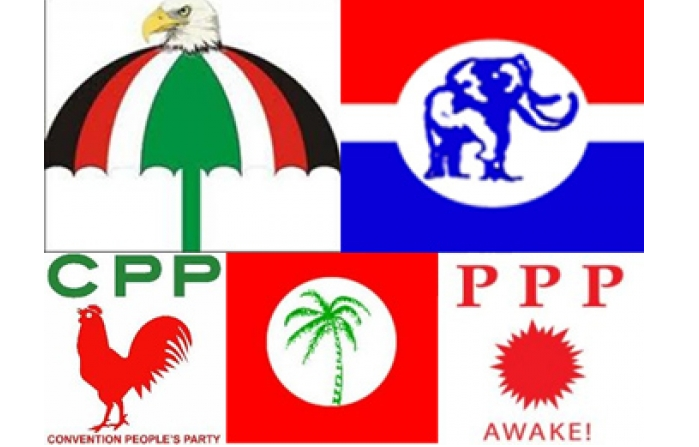
Indicate approaches to natural resource governance
Political parties contesting the 2016 election have been urged to speak to their proposed approaches to deal with improving natural resource governance in the country.
Although they have made statements committing to take urgent steps to bridge identified governance gaps, much more needs to be done.
A report on the “Status of Oil and Gas Governance in Ghana” released by the Civil Society Platform on Oil and Gas (CSPOG) in Accra said the Africa Mining Vision (AMV) provided the best opportunity for improving natural resource governance.
It, however, noted that Ghana had not done much to comply with it and that beyond a gap analysis that was undertaken in 2015, the country could not report on any other activity aimed at aligning the country’s natural resource governance with the AMV.
What is AMV?
The AMV imposes an obligation on all African Union (AU) member states to align their governance arrangements and approaches to the management of their natural resources to a set of prescribed principles pooled from international best practices and lessons drawn from the continent’s century-old experience in mining.
The need for the AMV is borne out of the governance and management challenges that African countries face in transforming their economies using natural resources as a catalyst.
In addressing this, the report said, political parties ought to state their positions on the strategy for achieving the required alignment as directed by the AU.
It said saving oil funds abroad and earning less than one per cent, while borrowing at 10 per cent and more did not make economic sense and that at the current production level, bringing the money home would not create overheating in the economy.
However, such a move had the risk of abuse of the savings, the report posited, and asked the political parties to propose strategies to optimise the benefits of the petroleum funds.
Unveil strategies on oil & gas
Also, the CSPOG report, which was undertaken with support from the Ghana Oil and Gas for Inclusive Growth (GOGIG), asked the political parties to make known their proposed strategies to interface the oil and gas sector with the rest of the economy, especially agriculture.
Ghana being a commodity-dependent country, the report said, had devised a mechanism for managing the volatility effect of only petroleum revenues on the budget leaving the other commodities to their fate and for which reason, the political parties ought to propose strategies to address this anomaly.
The report said from analysis conducted, Ghana appeared to have made commendable progress in addressing most of the fundamental challenges that the country faced at the inception of oil production.
It, however, added that there were still concerns about some persisting gaps that required urgent attention if the country were to be counted as having fully complied with international best practices and norms in managing its oil and gas resources.
Address these anomalies
For instance, the report said, it was an anomaly for Ghana to have passed the Petroleum Revenue Management Act (PRMA) ahead of the new Exploration and Production (E&P) law and for which reason, there would be the need to review the two to ensure coherence between them.
The CSPOG report also said legislations must not only be properly sequenced but ought to be together as a complete package, noting that in the case of Ghana, there was the absence of a full complement of laws to govern the sector.
“Outstanding instruments include regulations to PRMA, regulations to the new E&P law, metering regulations, strategic environmental impact assessment of the Voltarian basin, gas master plan and how it interfaces petroleum with other sectors of the economy to avoid the Dutch Disease,” the report indicated.
Contracting processes, the report said, ought to be open and competitive in order to secure the best deal for the host country, saying while that was not so in the past, the new E&P law had partially addressed it, but the problem was that the new law gave discretionary power to the sector minister to ignore the outcome of a bidding round and to award the contract to a company of his choice.
